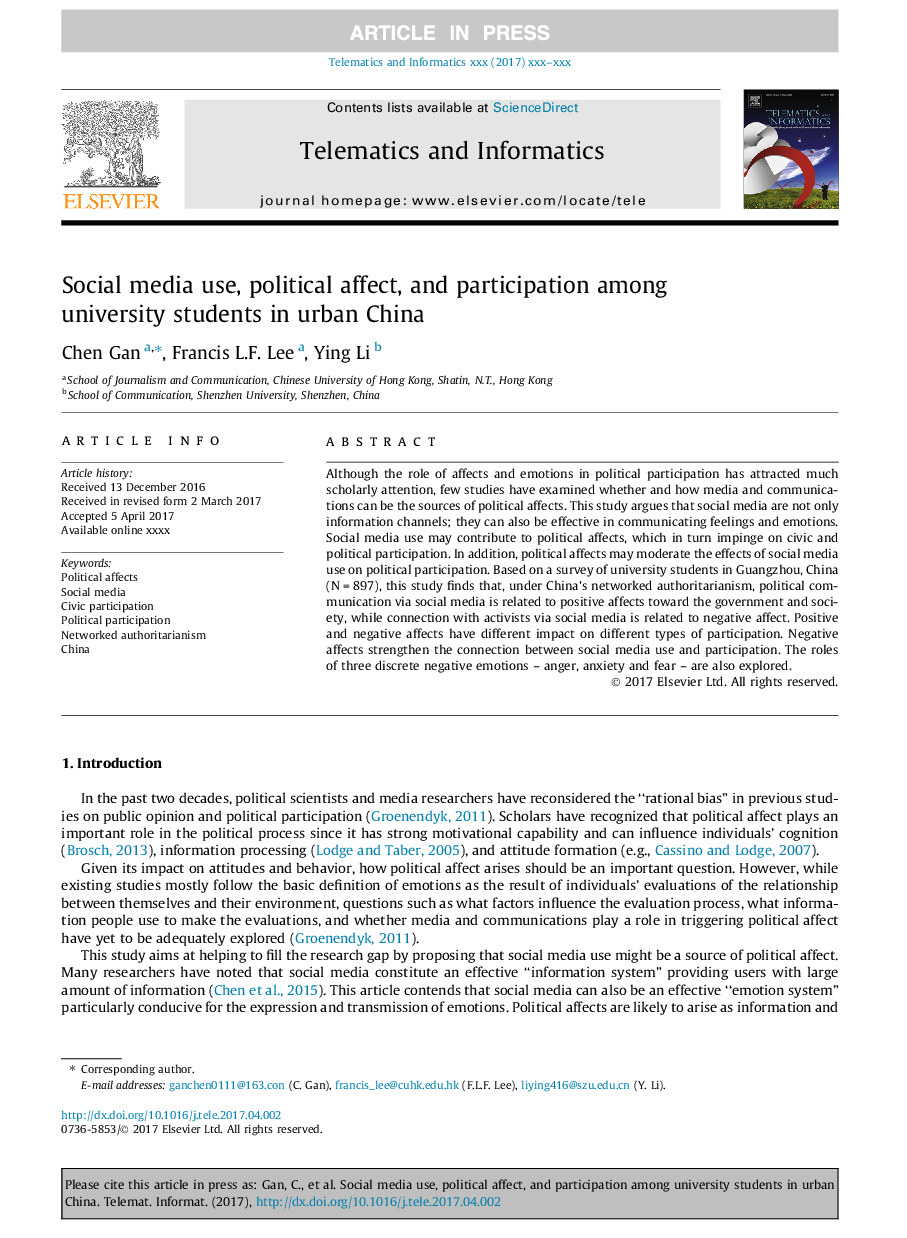| Article ID | Journal | Published Year | Pages | File Type |
|---|---|---|---|---|
| 6889935 | Telematics and Informatics | 2017 | 12 Pages |
Abstract
Although the role of affects and emotions in political participation has attracted much scholarly attention, few studies have examined whether and how media and communications can be the sources of political affects. This study argues that social media are not only information channels; they can also be effective in communicating feelings and emotions. Social media use may contribute to political affects, which in turn impinge on civic and political participation. In addition, political affects may moderate the effects of social media use on political participation. Based on a survey of university students in Guangzhou, China (NÂ =Â 897), this study finds that, under China's networked authoritarianism, political communication via social media is related to positive affects toward the government and society, while connection with activists via social media is related to negative affect. Positive and negative affects have different impact on different types of participation. Negative affects strengthen the connection between social media use and participation. The roles of three discrete negative emotions - anger, anxiety and fear - are also explored.
Related Topics
Physical Sciences and Engineering
Computer Science
Computer Networks and Communications
Authors
Chen Gan, Francis L.F. Lee, Ying Li,
